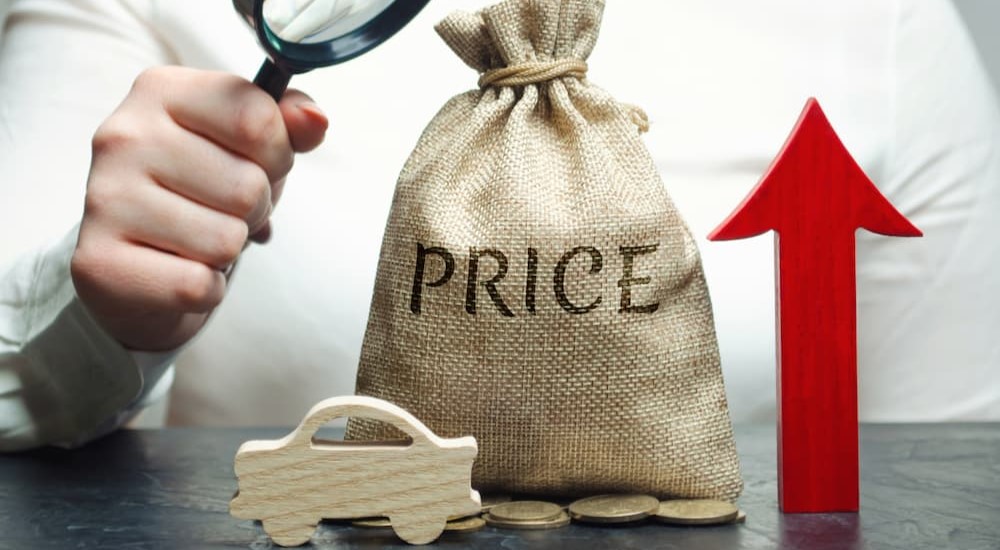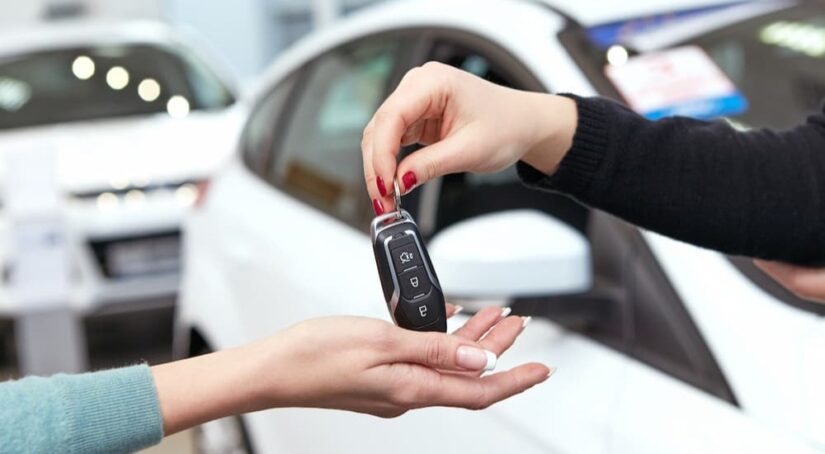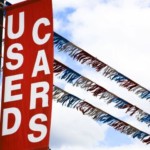For many, high prices aren’t the only obstacle to buying a car. If you’re borrowing money for some or all the purchase price — which, according to Statista, puts you in the same company as nearly 80% of U.S. new car buyers and 40% of used car buyers — high interest rates are also a deterrent. With the Federal Funds Effective Rate soaring from 0.08% to 5.33% since early 2021, U.S. car buyers are feeling the pinch.
The good news is that help could be on the horizon. Business Insider recently reported that by the end of 2024, the benchmark rate could fall below 3%. However, plenty of people can’t afford to wait. They need a vehicle now, whether due to an accident or because their current ride is no longer road-worthy. Even those without an urgent need can be affected. If you find a car you like but decide to wait a few months to see what happens with the market or to save up for a bigger down payment, there’s no guarantee the vehicle will still be available.
That doesn’t necessarily mean you need to resign yourself to paying a lot more for a car. However, it does mean you must inform yourself about the process and know your options. By knowing how to go about car-buying when there are high interest rates on auto loans, you can get the best rate and save yourself unnecessary payments.
What You Need to Know About Car Interest Rates
Most car buyers simply don’t have the money to pay for a vehicle in full. This isn’t surprising, as a car is one of the biggest purchases you can make. Cox Automotive and Kelley Blue Book reported that new U.S. vehicles cost an average of $47,946 in October 2023, which was down slightly from the previous year. The average price of a used car in the same period was $26,533.
As such, people turn to loans to get the car they need or want. The exact interest rate for a loan usually depends on six factors.
- The current Fed Fund rate: This is also called the prime rate because it’s the best-case scenario, with lenders adjusting it based on other factors.
- Your FICO score (credit score): The better your history of paying debts back and making payments on time, the better rate you can get.
- The down payment size: A larger down payment is considered a good sign of your ability to pay back the loan itself and can get you a better rate.
- The vehicle’s age: The older the vehicle, the higher the interest rate. The additional wear and tear makes them a higher risk in the eyes of the lender.
- The loan term length: Longer loans are considered a bigger risk due to interest rate changes and the chances of defaulting, so they charge more for interest. Shorter loans mean better interest rates, but also higher monthly payments because you’re paying the principal off faster.
- Debt-to-income ratio: This is how many total outstanding debts you have compared to how much income you have to pay those debts.
A small interest rate change makes a big difference. According to Bankrate, the average new car loan interest rate in January 2024 for someone with a FICO score of 781-850 was 5.61%. For a $40,000 loan spread over 60 months, that means you’re paying $5,964.74 in interest. The average rate for the next FICO tier of 661-780 jumped to 6.88%, meaning $7,387.42 of total interest for the same loan size and term.

What to Consider When Buying Cars at a High Interest Rate
Getting the best interest rate possible can save you thousands of dollars. How do you go about doing that when rates are sky-high? Let’s dig into some ways you can get the best terms on a loan that fits your budget and needs.
- Know your FICO score and average interest rates for people with similar scores. A little research will give you an idea of what people in similar situations are paying for interest. If the rate you’re offered is noticeably higher than this average, try to find out why.
- Along the same lines, request a copy of your credit report and make sure it’s accurate. If there’s a discrepancy, such as a loan you’ve already paid off that is still listed as active, it can greatly impact your FICO score and your interest rate.
- If you don’t have a good credit score, find a co-signer. If a family member or friend with good credit is willing to co-sign your loan, lenders will give you a better rate. The risk is that if you default, your co-signer is on the hook for the remaining debt, which will test even the best relationships.
- Just as you can usually negotiate a car’s purchase price and trade-in value, you can also negotiate your loan interest rate. Lenders rarely are required to make their initial offer the best one, so there may be some wiggle room for you to make a counteroffer.
- In addition to used vehicles having higher interest rates, lenders usually offer shorter loan terms since the cars aren’t expected to last as long. This can make the monthly payment significantly higher and even comparable to a new car. It seems contradictory, but new cars might become more viable with high rates.
- Remember that lenders may offer different interest rates. It could be because they consider other factors, such as your education level, or because they have different acceptable levels of risk. They may also just have lower rates in general. Shopping around could save you a bundle.
What to Ask a Dealer About Interest Rates
Often, a dealer will arrange financing, acting as an intermediary between the car buyer and lender. Getting a loan through them isn’t a requirement. Some have been known to increase interest rates slightly as compensation for being the middleman. Still, it’s an avenue worth exploring, and you should be prepared to ask the right questions when the topic comes up.
Start by simply asking for a lower interest rate. The first offer isn’t necessarily the best, and it’s surprising what you can get just by asking. You should then ask about different loan term lengths and how they affect the interest rate. Also ask whether you qualify for any promotional interest rates and how long those last. You’ll want to pay off as much of the loan as possible before the promotion ends, as rates can go up significantly at that point.
You might ask about the possibility of a variable-interest loan. So far, we’ve discussed fixed-interest loans where the rate remains unchanged for the full loan period. Some dealers may offer a variable-rate loan, periodically adjusting the interest based on the prime rate. Although this type of loan is risky when Fed rates are low, it can be great when interest rates are high, as they will likely decrease over time. Just ensure there’s a rate cap to protect you if the prime rate continues to rise.
Finally, ask how the interest rate is compounded and the repayment terms. The same rate compounded daily, monthly, or yearly will lead to different total amounts. Also, some dealers still have a “prepayment penalty” where they collect the pre-scheduled interest even if you pay off the principal early. Make sure there is no penalty for paying the principal off early, which will reduce the total interest you owe.

Being Smart with Auto Loans
You can’t always predict when you’ll need to buy a vehicle. Even when auto loan interest rates are high, doing your due diligence and knowing what questions to ask will get you the best possible rate. Use this guide to navigate the car-buying landscape and improve your chances of finding a car on your terms.



